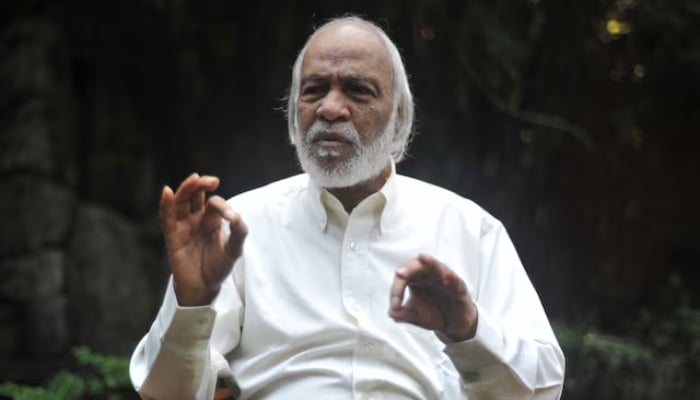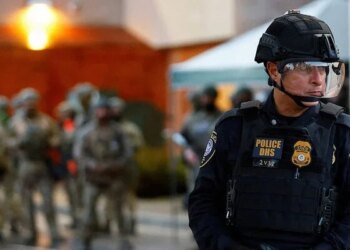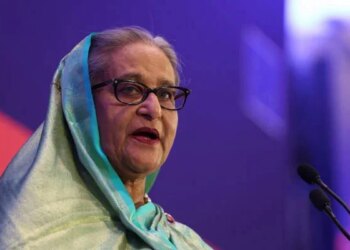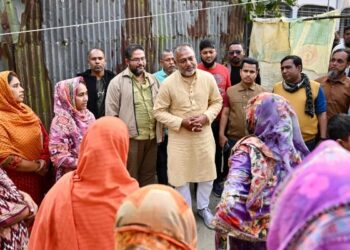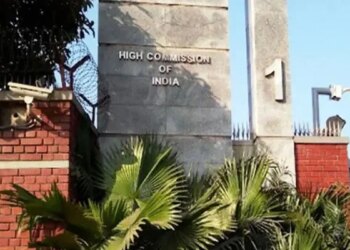Select Language:
- Interim PM indicates elections may be postponed until June 2026.
- BNP has no intentions of participating in elections as part of any coalition.
- Khan states internal party surveys indicate a majority victory for BNP in the next election.
NEW DELHI: The primary opposition party in Bangladesh has cautioned that the nation could face instability and “significant public discontent” if elections are not conducted by December. This warning comes after the interim prime minister hinted that the polls might be delayed until 2026.
Since August, an unelected interim administration, led by Nobel laureate Muhammad Yunus, has governed the South Asian nation of 173 million, following violent protests led by students that resulted in the flight of Prime Minister Sheikh Hasina, a longstanding ally of India, to New Delhi.
Both Hasina’s party, the Awami League, and the opposition Bangladesh Nationalist Party had sought elections to take place last year. However, Yunus announced in a speech that elections might not occur until between December 2025 and June 2026.
He stated that this delay would allow for reforms necessary to facilitate “the most free, fair, and credible elections in Bangladesh.” The opposition and some Western nations have accused Hasina’s government of widespread electoral fraud, allegations which she has denied.
Earlier this month, a former minister under Yunus, student leader Nahid Islam, remarked that conducting elections this year would be challenging due to ongoing issues with public safety and law enforcement.
However, the BNP insists on a return to democratic processes this year, as emphasized by Abdul Moyeen Khan, a member of the party’s top decision-making body and former minister of science and technology.
“We will attempt to persuade them that calling for an election as soon as possible is the best course of action,” Khan told Reuters in an interview on Saturday, referring to the interim government.
“December is a generally accepted timeline. Delaying beyond December would complicate matters further,” he asserted, speaking from Washington D.C., where he is meeting with U.S. officials to discuss the situation in Bangladesh.
“There will be significant public discontent if things extend beyond this timeline. That could lead to instability; time will reveal what happens,” he stated.
Khan is the first senior figure from the BNP to issue a warning about potential unrest should elections be postponed this year.
No pre-election alliance for BNP
The Awami League, under Hasina’s leadership, has been largely fragmented, with the prime minister and other high-ranking officials either exiled or evading authorities.
In the upcoming elections, the BNP’s main competitors are expected to be a newly formed student group by Islam, the Jatiya Nagorik Party, or the National Citizen Party. Student leaders have voiced that the people of Bangladesh are weary of the traditional parties and are seeking change.
However, Khan highlighted that internal surveys conducted by the BNP reveal they would secure a clear majority in any election held in the next year. He also indicated that acting party president Tarique Rahman would return to Dhaka from his self-imposed exile in London following an announcement of elections.
In recent months, several court rulings against him and his mother, former prime minister Khaleda Zia, have been lifted, potentially allowing his return.
Zia, who is dealing with liver cirrhosis and heart complications, has been recuperating in London since January. Khan noted, “she is doing much better than during her time in Bangladesh,” but he does not expect her to step back into active politics.
Currently, Khan stated that the BNP does not foresee entering the elections as part of any coalition, but is open to collaborating with other parties, including the Jatiya Nagorik Party, post-election.
“After the elections, we would be willing to form a government with anyone who supports democracy,” he concluded.

